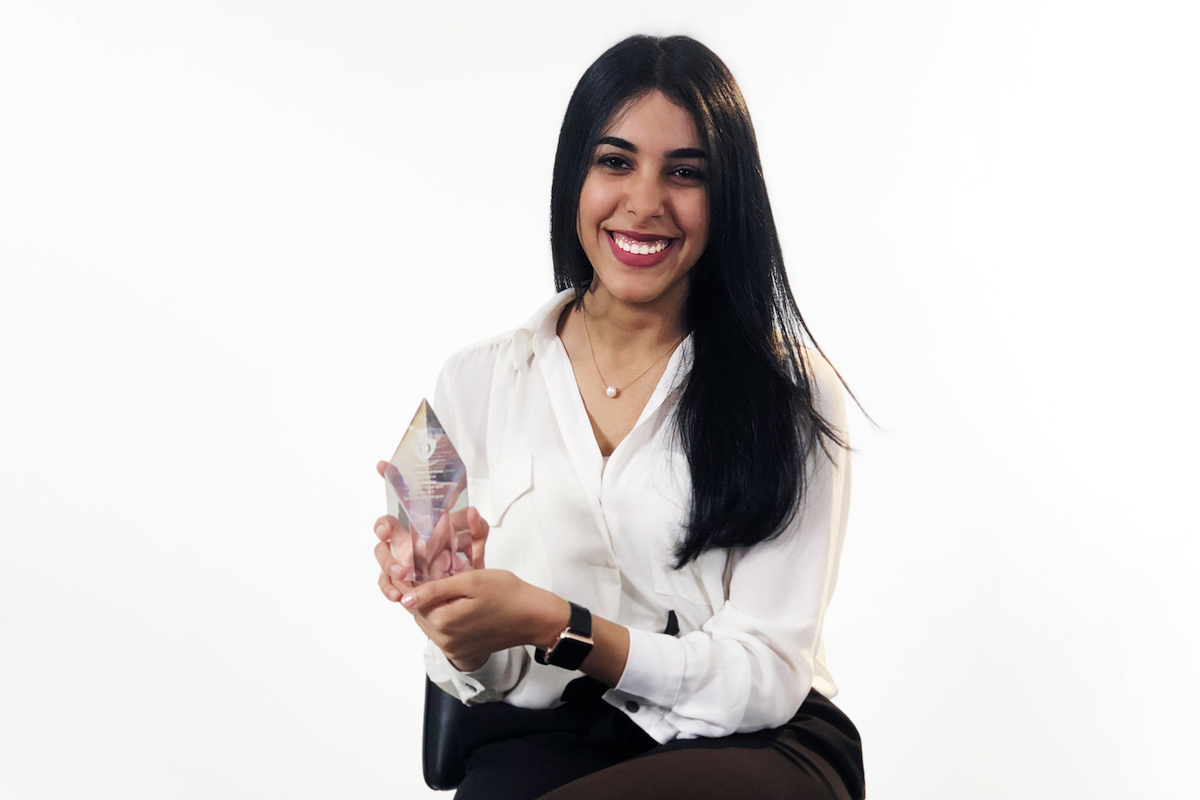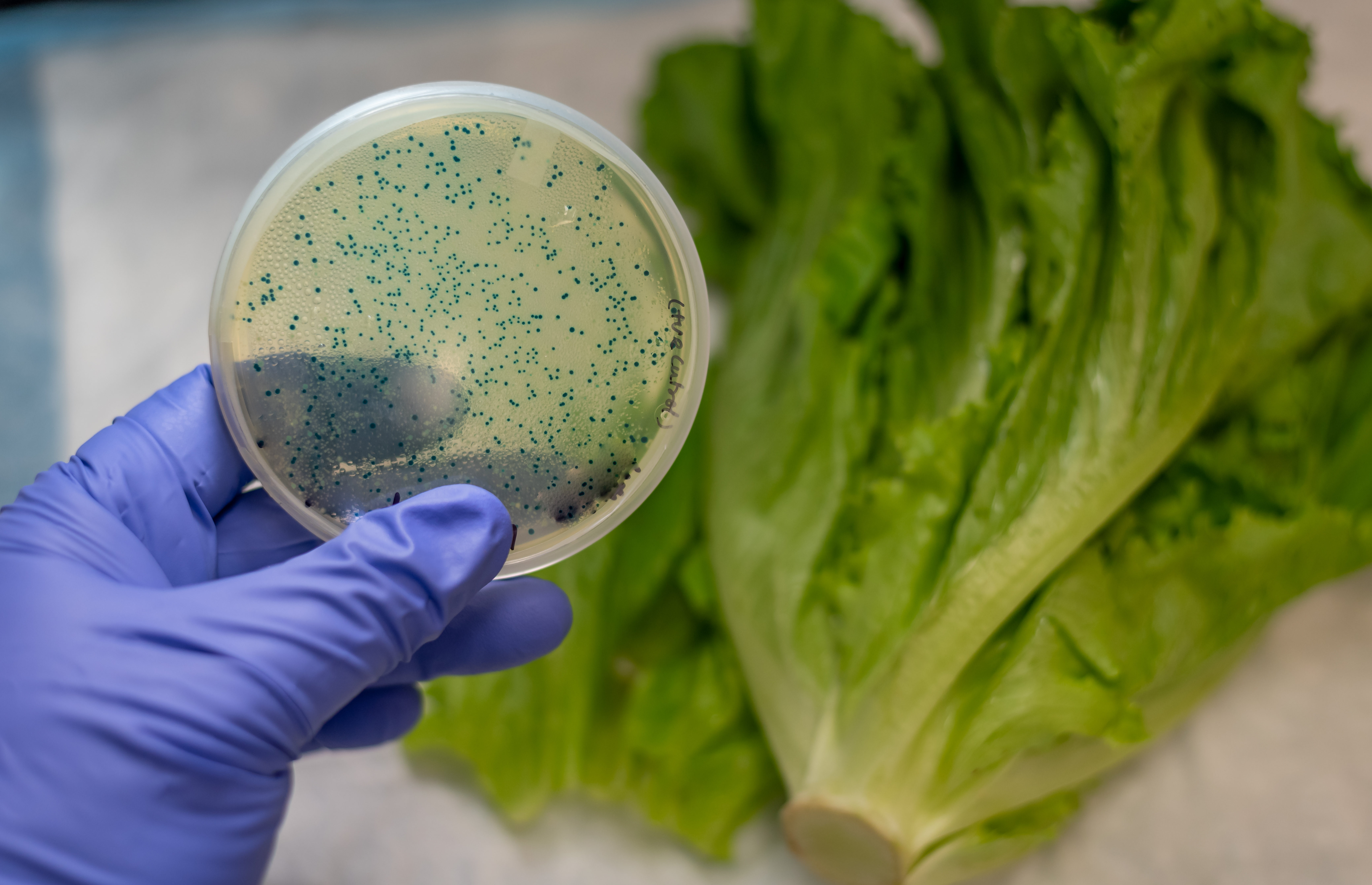Pitching a winning business idea

KAUST Ph.D. student Asrar Damdam's business idea—biotechnology startup UVERA—ranked first out of 116 other ideas in a recent Silicon Valley pitching competition. Damdam is pictured here with her award from the competition. Photo courtesy of Asrar Damdam.
-By A. Ortega, KAUST News
Over the summer, KAUST electrical engineering Ph.D. student Asrar Damdam attended a five-week pre-accelerator program sponsored by Saudi Arabia's MiSK Foundation at Draper University, U.S. Through her entrepreneurial training, she created UVERA, a biotechnology startup that focuses on increasing the lifetime of fresh food by using an ultraviolet-based post-harvest treatment.
On July 18, she participated in a pitching competition at Draper University, during which her business idea ranked first out of 116 participants' ideas from 18 different countries. Her idea was ranked as the most investable business idea by over 30 venture capitalists, investors and entrepreneurs from Silicon Valley.
Ultraviolet sterilization of fresh food
Damdam's business idea came from her knowledge of the effect certain ultraviolet wavelengths have in reducing food pathogens that degrade food's quality and accelerate food spoilage.
"The main advantage of the technology is increasing [food's] lifetime by [sterilization] from different [foodborne pathogens] such as gray mold and powdery mildew, in addition to disinfecting food from different [pathogens] such as Escherichia coli and Salmonella," Damdam explained. "[Such] non-chemical food treatment is meant to reduce food waste and is expected to have a considerable global, environmental and economic impact."

In her novel business idea, Ph.D. student Asrar Damdam uses ultraviolet light-emitting diodes to reduce pathogens of fresh food, such as Escherichia coli (pictured here). Image courtesy of Shutterstock.
"Professor Li presented [the recent discoveries and applications of ultraviolet LEDs, and] their effect on fresh food was one of them. I was so fascinated by this magical effect: a light can make food last longer! Right after that, I ordered some UV LEDs to build a prototype, [and] I applied for the entrepreneurship program in Silicon Valley," Damdam said.
Envisioning long-term goals
At KAUST, Damdam is part of Professor Muhammad Mustafa Hussain's Integrated Nanotechnology Lab. After receiving her bachelor's degree in electrical and computer engineering from Effat University in Jeddah, she joined KAUST as a visiting student in the summer of 2016. In the fall of 2016, she became a master's degree student in Hussain's group.
KAUST Professor Muhammad Mustafa Hussain is Ph.D. student Asrar Damdam's supervisor and heads the University's Integrated Nanotechnology Lab. File photo.
"After considering the benefits and opportunities in both institutions and envisioning my long-term goals, I came to the conclusion that KAUST is the best fit for me," she said.
Related stories:
- KAUST postdoctoral fellow Muhammad Jamil wins best poster award
- KAUST postdoctoral fellows win Young Scientist awards at Euroanalysis XX Conference
- KAUST Ph.D. student receives environmetrics best poster award
- Hussain is taking a flexible approach
-
Democratizing electronics one step at a time

